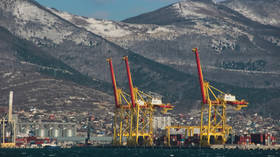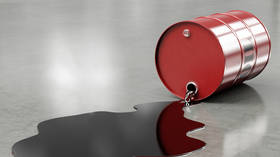Brussels reveals decision on Russian oil price cap

The European Commission (EC) has informed member states that the price cap on Russian crude oil will remain unchanged, Bloomberg reported on Friday. The EC is said to have argued that the current cap has proved effective in curbing Moscow’s energy revenues, while not destabilizing the global market.
The EU’s executive body reportedly told members of the bloc earlier this week that the current price limit of $60 will not be lowered by the Group of Seven (G7) nations.
The measure came into force in December and bans Western corporations from providing insurance and other services to shipments of Russian crude, unless the cargo is purchased at or below the set price. Earlier this month, the International Energy Agency (IEA) said the goal of reducing Moscow’s energy revenues and keeping global oil prices from spiking had been achieved.
According to an IEA report, which formed the basis of a review into the cap, Russia’s estimated oil export revenues fell to $11.6 billion last month. That figure was down $2.7 billion from January, when volumes were significantly higher.
The G7 had previously agreed to review the price ceiling in mid-March, while EU legislation requires the threshold to be set at 5% below average market rates. On that basis, Poland and the Baltic states had been pressing for a review of the price cap downwards.
However, the restrictions cannot prevent Russia from shipping its crude at any price if the cargos do not use services and vessels of enterprises based or registered in G7 and EU countries.
According to Bloomberg, Russian producers still rely on Western insurers to cover more than half of the tanker fleet that transports their crude.
EU members were informed that there was some openness to the possibly of making the price-cap mechanism less rigid, sources told the agency, without providing details on what that would mean in practice.
For more stories on economy & finance visit RT's business section













